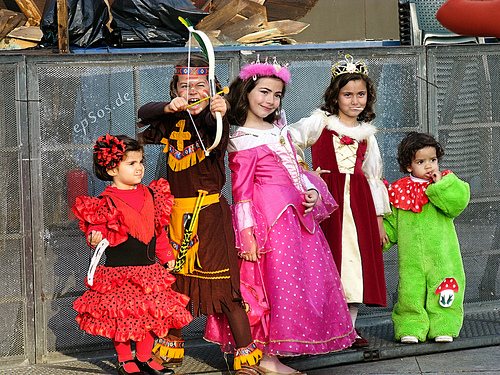
Image via Wikipedia
Helping your kids develop a healthy work ethic doesn’t have to become another dreaded chore on your never-ending parental “to do” list. Sometimes all it takes is a willingness to look at household chores with a new eye.
Lots of families choose to get together on Saturday morning to knock out the bulk of their household chores as a team. Some parents struggle with getting everyone together and handing out assignments. Others find it difficult to strike a balance between involving the kids and keeping their high housekeeping standards intact.
The important thing is that our kids develop the attitudes and skills they will later need to manage for themselves. Try not to be too stressed out about “getting it perfect;” maybe thinking a bit about “what they are learning” will make the whole process a bit more fun for all of you.
What can be learned through Saturday morning cleaning dates? Well, obviously, the ‘hands-on’ skills e.g. dusting, polishing, sweeping and the like.
But what about organizational skills? And the sense of teamwork and mutual support that comes into play when we tackle real tasks as a family?
There’s something to be said for growing up with an age-appropriate level of responsibility that lets a kid enjoy the feeling of being a competent, contributing member of the household. It’s certainly better than sending them off to college believing that the Laundry Fairy is going continue to fill their dresser drawers!
And please don’t underestimate the negotiating skills and creativity that can come from trying to get out of these family cleaning session! Of course, if we let them, our children will often surprise us with new and better ways to achieve the desired results.
How do you divide up work? Does everyone get to do the work they most enjoy or does your family work on rotation? Do you use a chore chart? Drawing from a jar? Do the kids ever get to decide… well… how to decide? (Planting the seeds of leadership and time management skills, perhaps?)
Do you use rewards? Subtract “points” for sub-par work? Or get together afterward for fun and FREE rewards: a walk, a trip to the library, a bike ride or 15 minutes later to bed.
The simple act of regularly completing chores on can help to develop good lifetime habits: discipline, a strong work ethic… and empty trash cans!




